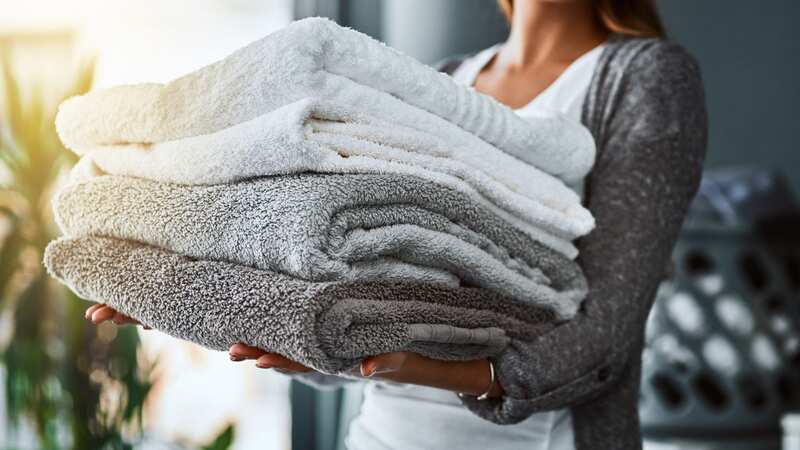Dry your clothes effectively for just 63p with 'common' household appliance

Households across the UK saw their energy bills soar by five percent on January 1, so many Brits are understandably avoiding expensive appliances to cut costs.
In fact, research has shown that around 53 percent of households own a tumble dryer, but only 11 percent use the machine on a regular basis. While the summer line drying option is more cost-efficient, appliance expert Gwilym Snook has revealed that tumble dryer usage may be cheaper than you think.
He said: "When tumble dryers are compared to air drying your clothes, a common myth believed is that tumble dryers are not cost effective and add an extra burden on your bills. This is simply not true.
"A heat pump tumble dryer will cost 63p a cycle on average, a figure far smaller compared to using central heating to dry your clothes this winter. They work by recycling hot air created inside the drum to dry clothes, which saves a lot of energy and is the eco-friendlier option."
According to Ideal Home, this figure is based on a 9kg heat pump dryer that uses 2.16 kWh for a full load and 259 kWh per year. This will set your back by around 63p per cycle and £75.11 per year.
 Shop prices 'are yet to peak and will remain high' as inflation hits new heights
Shop prices 'are yet to peak and will remain high' as inflation hits new heights
"To reduce costs even further this winter, you can look to dry your clothes between 10pm and 8am during off-peak electricity hours," added Gwilym. He then went on to debunk more costly common appliance myths, which can be found below.
Four common appliance myths
Dishwashers are more expensive
It is a commonly-held misconception that washing dishes by hand is cheaper than using the dishwasher, but the expert claims this is false. He referenced data from the Energy Saving Trust, which found that hand-washing accounts for four percent of the average household’s water use, while dishwashers make up just one percent.
Gwilym explained: "This accounts for washing the dishes whilst leaving the tap running – a common mistake that leads to more households out of pocket when facing their energy bills. Using a dishwasher also helps ensure the water is the right temperature and clean enough to wash dishes thoroughly, something far more difficult to achieve with handwashing."
He added: "There’s a common misconception that eco-cycles use more energy because they take a bit longer to complete a cycle. In truth, each eco setting washes dishes at lower temperatures and uses far less water. This means, on average, economy functions use 30 percent less energy and water when compared to a standard function."
Electric ovens are more costly
Many Brits are reluctant to purchase an electric oven over concerns they will rocket electricity bills, but Gwilym states electric ovens consume "far less energy than what you might think".
He said: "On average, an electric oven will total for only eight percent of your total household electricity bill – a tiny fraction of cost considering that your fridge will typically account for 30 percent of the same usage.
"However, be mindful when using your oven, you don’t needlessly waste energy. Only preheat your oven when necessary and be sure to clean your oven once a month so it runs efficiently."
Old fridges are cheaper
The expert discredited the myth that older fridges are more economical, stating they use "far more energy" than newer fridges and cost more to run daily. He said: "Newer fridges offer better energy-efficiency and have greater features than their older counterparts. These modern additions like auto defrost help to make these fridges much more cost-effective."
To ensure your fridge is more energy-efficient, Gwilym suggests keeping it stocked up so that the temperature stays cooler for longer. "As a rule of thumb, leave roughly 20 per cent as open space to ensure your fridge runs efficiently," he added.
Appliances don’t use power in standby mode
Contrary to popular belief, appliances will still use a notable volume of electricity on standby mode. The guru recommends turning the plug off at the switch or simply removing it to make sure your appliances aren’t on.
 8 money changes coming in February including Universal Credit and passport fees
8 money changes coming in February including Universal Credit and passport fees
Gwilym concluded: "Alternatively, you can look at smart home technology which will allow you to control your devices at a click of a button. Keep on top of standby mode and you’ll notice a change to your electricity bills."
Read more similar news:
Comments:
comments powered by Disqus

































